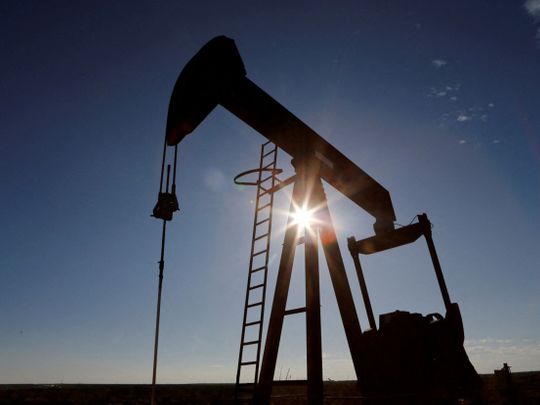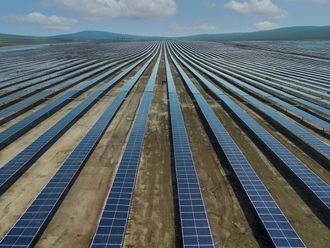
Dubai: Oil hit a three-week high on Tuesday as China's latest easing of COVID-19 restrictions spurred hopes of a demand recovery, although prices pared gains after some US energy facilities shut by winter storms began to restart.
China will stop requiring inbound travellers to go into quarantine, starting from January 8, the National Health Commission said on Monday in a major step towards easing curbs on borders that have been largely shut since 2020.
Brent crude was up 19 cents, or 0.2 per cent, at $84.11 a barrel by 1450 GMT and US West Texas Intermediate crude gained 39 cents, or 0.5 per cent, to $79.95. Both benchmarks hit their highest since December 5 earlier in the session. "This is certainly something that traders and investors have been hoping for," Avatrade analyst Naeem Aslam said of China's plan over the quarantine rule.
UK and US markets had been closed on Monday for Christmas holidays.
Equities gained while the US dollar softened on Tuesday in response to the Chinese move. A weaker dollar makes oil cheaper for holders of other currencies and tends to support risk assets. Oil also drew support from worries over supply disruption because of winter storms in the United States, said Kazuhiko Saito, chief analyst at Fujitomi Securities.
"But the US weather is forecast to improve this week, which means the rally may not last too long," he said.
Some facilites were already being brought back online.
TotalEnergies continued restarting its 238,000 barrel-per-day (bpd) Port Arthur, Texas refinery on Tuesday, said people familiar with plant operations. As of Friday, some 1.5 million barrels of daily refining capacity along the US Gulf Coast was shut, while oil and gas output from North Dakota to Texas suffered freeze-ins, cutting supply.
Concern over a possible production cut by Russia also provided price support.
Russia might cut oil output by 5 per cent to 7 per cent in early 2023 as it responds to price caps, the RIA news agency cited Deputy Prime Minister Alexander Novak as saying on Friday.












